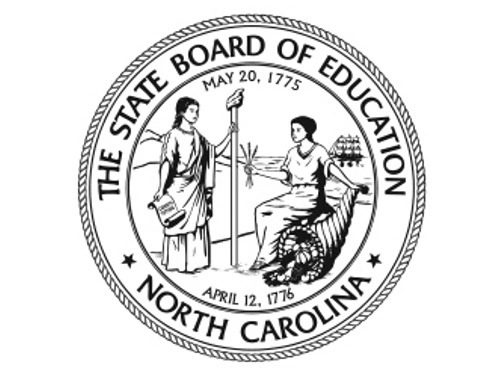
RALEIGH — In an apparent end-run around the authority of the new Charter Schools Review Board, a new proposed policy approved by the N.C. State Board of Education (SBE) may have the effect of tying up funding approvals for charter schools.
This legislative session House Bill 618 was passed, which created a Charter Schools Review Board (CSRB) made up of 14 members to replace the current Charter Schools Advisory Board and with the power to approve or deny charter applications, grant renewals, and issue revocations. The bill was vetoed by Democratic Gov. Roy Cooper but became law after successful veto override votes.
The proposed policy CHTR-022 cites the new law as the SBE retaining its constitutional authority to “establish all rules for the operation and approval of charter schools,” and to “allocate funds to charter schools” in order to “ensure accountability from charter schools for school finances” and student achievement.
Per the most recent report to the General Assembly, as of Dec. 1, 2022, there were 206 public charter schools in North Carolina serving more than 137,500 students, or just over 9% of the total public school population.
According to that report, from 1998 to 2022 only 53 charter schools voluntarily relinquished their charters, one was assumed by another nonprofit board, 11 were not renewed and 22 charters were revoked by the SBE.
At the conclusion of the Sept. 7 meeting, the Democrat-controlled SBE voted to approve the policy by a vote of 8-3. Olivia Oxendine, State Treasurer Folwell and Lt. Gov. Mark Robinson all voted no.
Under the statutes governing the SBE, the board has 13 members including 11 members appointed by the governor who are supposed to be confirmed by the General Assembly. The other two members are the state treasurer and lieutenant governor.
Only three of the 13 current board members are Republicans: the trio who voted against the new policy.
Eight of the governor’s appointees are from the state’s eight education regions and currently serve an eight-year term. The board also has three at-large appointees.
At the onset of the monthly meeting on Sept. 6, Folwell voted to oppose adoption of the agenda containing the new proposed policy. The motion was voted down 5-2 and the policy stayed on the agenda.
During the Sept. 6 meeting discussion, several members, including State Superintendent of Public Instruction Catherine Truitt and Oxendine pointed out the new charter policy was “vague” and therefore could be used to withhold funding to schools approved by the CSRB.
SBE board member John Blackburn, who sits on the Education Innovation and Charter Schools Committee under which the policy was being introduced, responded that the CRSB’s first meeting was upcoming and therefore the policy “needed to come before us.”
Truitt told Blackburn the board should have prepared earlier and could have anticipated the veto of the bill would be overridden by the Republican supermajorities in the legislature. She added that neither her office nor the Office of Charter Schools even saw the policy until late in the afternoon of the previous Thursday.
Chair Eric Davis bypassed the actual date of the bill’s passage at the end of June and instead used the veto override date of Aug. 16 in responding to criticism of the short introduction timeframe of the policy. He, like Blackburn, also blamed the short lead time on the impending first meeting of the CSRB.
Truitt countered Davis’ comments by saying once her staff did see the policy, one of the questions unanswered was, “What are the criteria that the board could use to not provide funding?”
Robinson also said his office did not receive the policy until “a few days” after Truitt’s office did. The lieutenant governor also criticized the board for waiting until the last minute to unveil the policy as “unprofessional” and that it “smacks of dishonesty” and “political pandering.”
Reactions from charter school groups in the state to the policy proposal were swift.
In a statement, the North Carolina Association of Public Charter Schools (NCAPCS) called the move “unnecessary” and a “power grab.”
N.C. Coalition for Charter Schools Executive Director Lindalyn Kakadelis issued a similar statement, criticizing the board for playing “bureaucratic power games.”
Kakadelis also issued a letter to the board outlining how the new policy runs afoul of state law, stating the board “does not have authority to enact this policy on its own,” and the CSRB had to approve the policy “as the law requires.”
Kakadelis also wrote the new policy “has not followed the procedures necessary for rulemaking under the State’s Administrative Procedure Act,” and cited the state’s Charter School Act, which says the State Board of Education “shall allocate” a per-pupil share of funding “to each charter school.”
Kakadelis’ letter also questioned the circumstances under which the policy was drafted and the speed with which the board sought a vote, calling the timeline “highly unusual for a policy which has such far-reaching implications.”
Former Democrat state legislator Marcus Brandon also weighed in about the board’s move, tweeting in part, “When people abuse power — strip them of it.”

